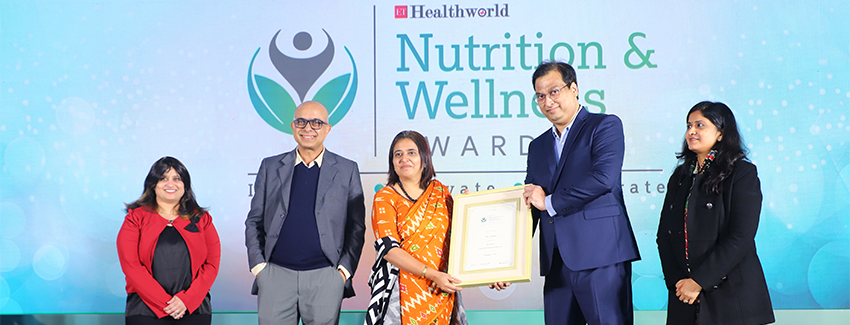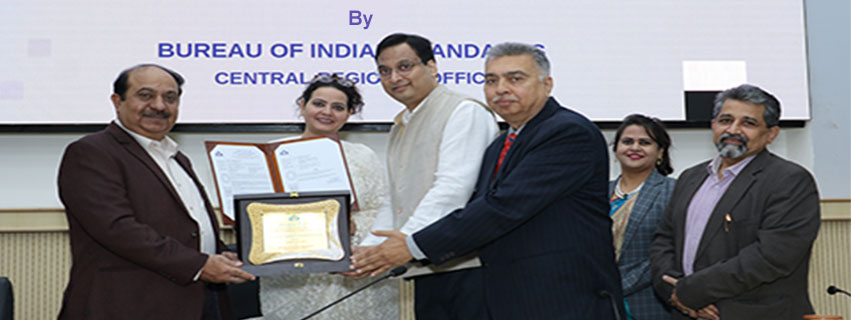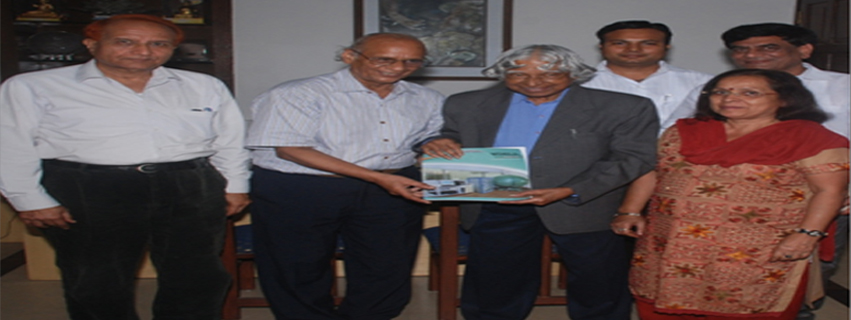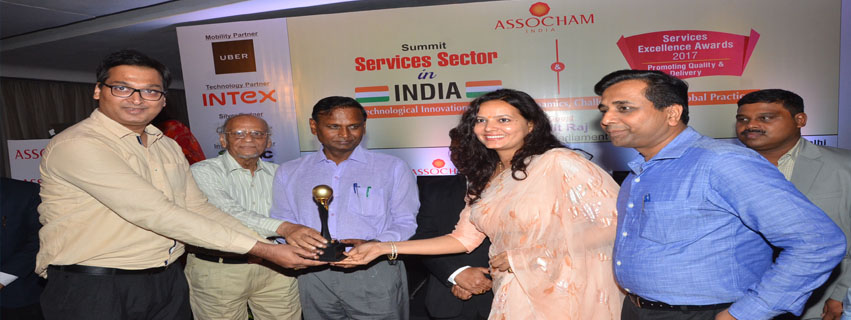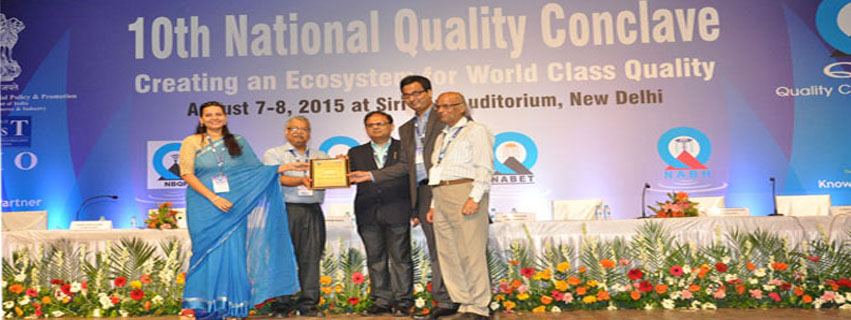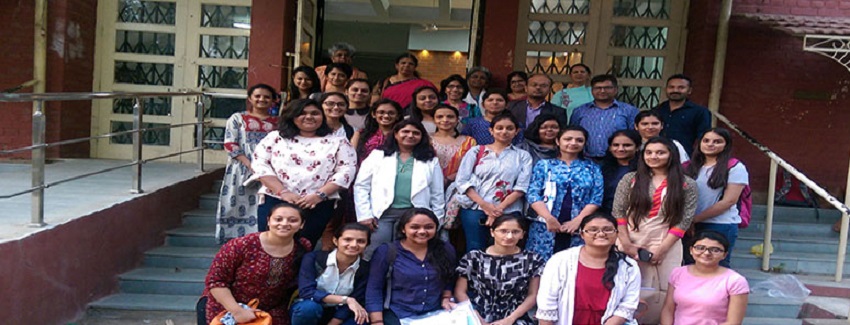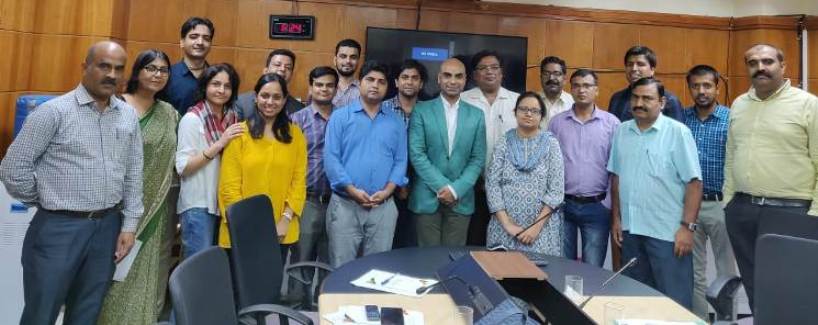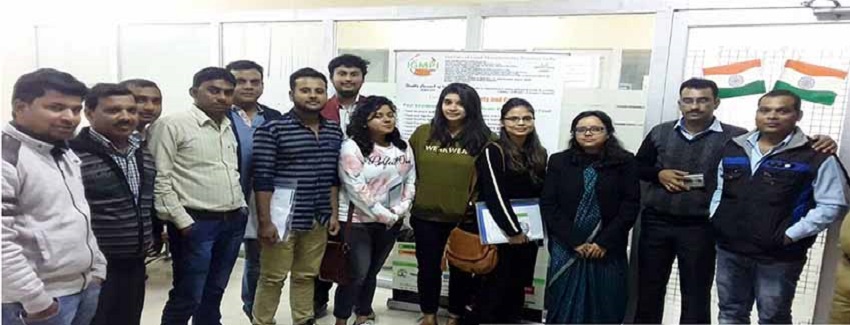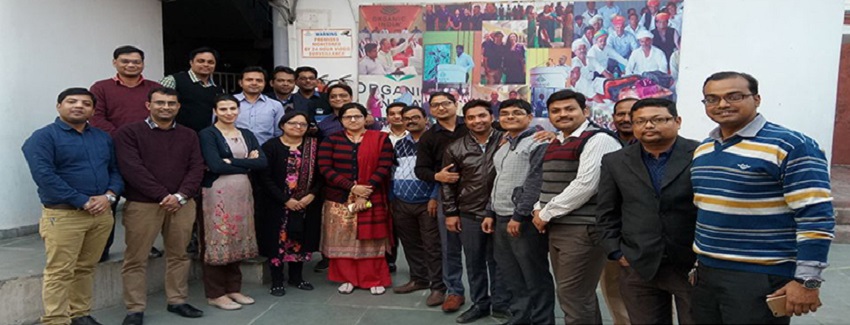(An Autonomous Body Recognized by Ministry of Commerce & Industry, Government of India)
Competency based placement focussed Education | Training | Research | Consultancy
Post Graduate Diploma/Executive Diploma in Nutritional Gastroenterology and Hepatology (PDGN/EDGN)
The Post Graduate Diploma/Executive Diploma in Nutritional Gastroenterology and Hepatology will help students to develop their skills to understand nutritional challenges seen in gastrointestinal diseases and their management in individuals.
Gastrointestinal (GI) Diseases are a range of illness and disorders affecting mouth, esophagus, stomach, hepatobiliary, and pancreatic systems; small and large bowel and rectum and anus. GI diseases namely constipation, irritable bowel syndrome, duodenal ulcer, nausea, food poisoning, gas, bloating, gastroesophageal reflux disease etc. are the most prevalent problem among all countries. Nutrition and intestinal function are closely interrelated in order to maintain healthy life. As per the studies chronic gastrointestinal disease elevates the susceptibility of malnutrition and increased morbidity & mortality among population. It has also been reported that specific nutrients also induce disease, for example, gluten-sensitive enteropathy, whilst dietary factors such as fibre, resistant starch, short-chain fatty acids, glutamine and fish-oils may prevent gastrointestinal diseases such as diverticulitis, diversion colitis, ulcerative colitis, colonic adenomatosis and colonic carcinoma.
The global gastrointestinal drugs market is expected to grow at a compound annual growth rate (CAGR) of 4.9 percent during the forecast period 2016 to 2024. The market was estimated to be worth $45.5 billion in 2015 and the same is expected to reach $61.6 billion by 2024. Hence there is a need of understanding the immediate importance of nutrition and its supportive and therapeutic role in the management of chronic gastrointestinal diseases.
In order to enrich the core skills and competencies of health professionals to effectively educate people with gastrointestinal health, to promote effective self-management for optimal prevention of disease Centre of Nutrition and Dietetics Studies (CNDS), IGMPI has designed this programme. This is undertaken through theoretical knowledge and equip the learners with interpersonal communication skills, this will facilitate psychological wellbeing of patients.
The objective of this programme is to refine the knowledge of nutrition in combating gastrointestinal diseases. The course provides an exhaustive understanding of anatomy, pathophysiology, risk factors leading to gastrointestinal tract diseases. It also signifies the part of nutrition in gastroenterology, as digestion and absorption of nutrient predominantly takes place in gastrointestinal tract.
On completion of this programme student will be able to learn the management of gastrointestinal tract diseases which requires detailed understanding of association between nutrition and gastrointestinal tract. The course will strengthen the knowledge of nutrition management in patients with disorders of the stomach, intestines, liver, pancreas, and colon, as well as other diseases that affect the gastrointestinal tract. You will be able to diagnose and give nutritional therapy to patients.
This programme opens new avenues of specialization for allied health professionals and would offer better work opportunities in the field. It will enable an individual to avail of jobs at government, community and private hospitals, community and private clinics, pharmaceutical and nutraceutical companies as a nutrition counsellor for gastrointestinal health. One can work as a diet counselor and assist doctor in counselling their patients suffering from gastrointestinal disorders in any private clinic/hospital.
Programme Structure
International Affiliation with
Module 1 : Introduction to Human Biology and Body Functions
Module 2 : Nutrients (Role and Significance)
Module 3 : Understanding Nutrition (Basic diets for normal conditions / RDA)
Module 4 : Introduction to Gastroenterology and Hepatology
Module 5 : Introduction to Anatomy and Physiology of Gastrointestinal Tract and Liver
Module 6 : Pathophysiology of Functional Gastrointestinal and Hepatic Disorders
Module 7 : Pathophysiology of Structural Gastrointestinal and Hepatic Disorders
Module 8 : Risk factor for Gastrointestinal Tract and Liver
Module 9 : Small Intestinal Bacterial Overgrowth (SIBO) and Nutrition
Module 10 : Role of Hepatology in Nutrition
Module 11 : Role of Nutrition for Sound Upper and Lower Gastrointestinal Tract Conditions
Module 12 : Nutrition for Liver Diseases
Module 13 : Nutrition for Pancreatic Conditions
Module 14 : Gastroenterology and Hepatology Diagnostic Tests and Assessment
Module 15 : Gastrointestinal and Hepatic Disease in Paediatrics and Geriatrics
Module 16 : Practitioner Case Studies
Module 17 : Practical Aspect-Nutrition Assessment, Diet Analysis, Review and Planning
Module 18: Capstone Project
Eligibility
Graduates in any discipline are eligible for our Post Graduate Diploma, Executive Diploma and Professional Certification Programmes.
Programme Duration
The minimum duration to complete the PG diploma programme is 12 months and maximum is 24 months. The minimum duration to complete the executive diploma programme is 6 months and maximum is 12 months.
Programme Mode
Registrations are currently open for regular and Part-time (Online Live Classes) both modes.
Programme Deliverables
A comprehensive study material for all the modules in hard copies ensures the needs of the audience. The accompanying training material is appropriately aligned with the current Industry’s expectations.
- Assignments for all the programme modules for continuous evaluation and guidance
- Interactive or online live sessions on all key areas of the programme giving all flexibility to the participants
- Online Live Classes/Part-time for all the modules will be conducted on the weekends. Moreover, a doubt clearing session will also be scheduled before the examination
- All the efforts are made by IGMPI faculty members to make the entire programme modules easily understandable
- Assessment and evaluation for all the programme modules in order to enhance the levels of competencies and skills of the participants leading towards the objective of application in the job
- At the end of each programme modules, the trainers shall obtain feedback from the participants using specially designed questionnaires
- - All learning and training delivery initiatives shall be conducted in English
Examination & Certification
All the participants are obliged to timely submit completed assessment assignments (during the programme, usually after every module) and appear for an online exam at the end of the programme. After successful completion, the participants will be awarded Post Graduate Diploma/Executive Diploma in Nutritional Gastroenterology and Hepatology by Centre for Nutrition and Dietetics Studies (CNDS), IGMPI. For all the above-mentioned modules elaborate programme material, self- assessment assignments and project work details would be provided by the Institute from time to time. Details get updated on the webpage as well.
Discipline in Classes and Examination
Every student is required to observe a disciplined behaviour during her/his classes, assessments & examinations and to follow instructions from the Professors. Any act of indiscipline may result into discredit & it will be mentioned in her/his academic report.
Placement Assistance & Corporate Relations
The Institute has partnered with many organizations for providing with placement assistance to in its participants. The robust placement cell comprises of senior level Human Resources professionals and Talent Acquisition experts which maintains close links with business and industry. We are engaged in promoting the employability of our participants by maintaining good rapport and relation with HR cell and recruiting managers of leading Food and Agriculture companies across the globe. The efforts of our placement cell also include helping with professional resume writing, interview skills & conducting mock interviews etc.
In recent Months the Institute has witnessed more and more participation from professionals working global healthcare and nutrition giants like Institiute of Liver and Biliary Sciences, Asian Institute of Gastroenterology, Aster Hospitals, Medanta- The Medicity Kokilaben Dhirubhai Ambani Hospital, Gleneagles Global Health City, Pushpawati Singhania Hospital & Research Institute, BLK Super Speciality Hospital, Aster CMI Hospital, etc.
Future career prospects
Centre of Nutrition and Dietetics Studies (CNDS), IGMPI’s online programme is a professional programme targeted to cater the health industry needs trained health professionals. The information, guidance, practical training and off programme completion certificate will provide the participant with not one but many opportunities in the industry. This would come true in the form of job roles and positions like that of health counsellor, health coach, nutrition Counselor for health and wellness industries, nutrition Officer among Non-Governmental Organizations, nutrition Officer in Community Development Programme run under government organizations, consultant for Multinational Companies, nutrition educator for Private Hospitals, counselors in Schools, Academia and many more.
Programme Fee Details
Programme fee details will appear here.
Last date for submitting completed Application Form: 6th Feb 2026.
For further enquiries, call or write to us on:
18001031071
(Toll Free -9:00 am to 5:30 pm IST-except on Central Government holidays)/
info@igmpi.ac.in
NEWSLETTER
CNDS, IGMPI a part of the Grand Jury for the prestigious Nutriwell Conclave and Healthcare Awards, 2025: Our Director presenting the awards
Other Programmes
- Athletic Nutrition (PGDAN/EDAN)
- Ayurvedic Food and Nutrition (PAFN/EAFN)
- Bariatric Nutrition (PGDBN/EDBN)
- Cardiac Nutrition (PGDCN/EDCN)
- Clinical Diabetology (PGCD/EDCD)
- Clinical Nutrition (PGCN/ECN)
- Culinary Nutrition (Nutritional Chef) (PACN/EACN)
- Diploma Health and Nutrition (DHN)
- Diploma Nutrition and Dietetics (DND)
- Functional Nutrition (PGDFN/EDFN)
- Lifecycle and Wellness Nutrition (PGDLWN/EDLWN)
- Medical Nutrition Therapy (PMNT/EMNT)
- Natural Health Nutrition (PGDNHN/EDNHN)
- Nutrition and Dietetics (PGND/EDND)
- Nutrition Endocrinology (PGDNE/EDNE)
- Nutritional Dermatology (PDND/EDNR)
- Nutritional Gynecology (PGNG/EDNG)
- Nutritional Nephrology (PGDNN/EDNN)
- Nutritional Oncology (PGDNO/EDNO)
- Nutritional Psychiatry (PGNP/EDNP)
- Obesity and Weight Management (POWM/EOWM)
- Ophthalmic Nutrition (PGDON/EDON)
- Pediatric Nutrition (PDPN/EDPN)
- Physiotherapy and Nutrition (PGDPN/EDPN)
- Public Health Nutrition (PGDPHN/EDPHN)
- Pulmonary Nutrition (PGDPN/EDPN)
- Sports and Fitness Nutrition (PSFN/ESFN)


